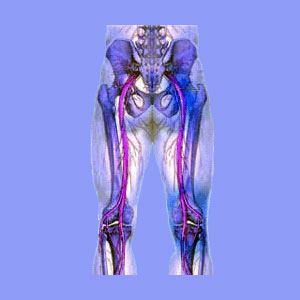
Do you suffer recurring sciatica during menstruation? Is pain worse during your period? If so, you are not alone. Menstrual sciatica is actually a major concern for some women and can torture them each and every month, defying traditional treatments.
What is the relationship between menstruation and sciatic nerve symptoms? What can you do to provide yourself relief from the pain safely? Is your period a direct cause of sciatica or simply an aggravating factor? These are the most common questions that we entertain from readers regarding pain during the monthly period.
This discussion focuses on the relationship between sciatica and menstruation.
Sciatica During Menstruation Factsheet
A woman’s monthly period creates a literal hormonal storm inside her body. While it is well and good to instruct women to accept these changes as a normal part of life, many women suffer tremendously each and every month due to chemical issues that rage not only inside their reproductive systems, but systemically.
Dysmenorrhea is the term used to describes period-related cramps. What is not commonly known is that cramps can actually occur widely in the body during menstruation and may affect far more than just the gut. Headaches, mood changes, vertigo, exhaustion, digestive issues and psychoemotional sensitivity are all possible consequences of menstruation.
Prostaglandins are the chemicals which are responsible for causing common uterine contractions during your period. These same chemicals can cause havoc throughout the body, including in the lower back muscles, the buttock muscles and elsewhere.
Sciatica Causes During Your Period
Menstruation can cause the back muscles to spasm and cramp. This can create all manner of complications in the spine, aggravating structural issues and potentially even causing compression of the cauda equina or individual spinal nerve roots. This can make menstruation a direct cause and exacerbating factor for spinal sciatica.
Similarly, muscular cramps can affect the pelvic and buttock muscles, potentially resulting in sacroiliac-related sciatica or piriformis sciatica. Both of these pseudo-sciatica syndromes are commonly aggravated by menstruation.
Any women who normally has sciatica or pseudo-sciatica might expect to feel worse during her period. Menstruation tends to have an overlay effect on existing pain and health problems, often intensifying symptoms for up to 2 weeks of the month!
Finally, even mindbody pain can be influenced by the monthly period. Psychosomatic and psychogenic pain syndromes tend to be worsened by any form of stress. Menstruation definitely qualifies! Additionally, some women actually have severe psychoemotional sensitivities revolving around their period, sexuality, pasts pregnancies, and other related subject matter. The monthly period tends to bring these issues closer to conscious recognition, requiring aggressive repression in the form of ischemic pain. Remember that most cases of chronic, treatment-resistant sciatica are caused by oxygen deprivation and not any structural spinal issue.
Finding Relief from Sciatica During Menstruation
Monthly period-related sciatica might be more difficult to treat than typical symptoms. This creates a big problem, since sciatica is already known as being very therapy-defiant! However, there are still methods that tend to work better than others:
Try not to rely too heavily on pharmaceutical care. Drugs might help you to feel a bit better, but do so at great collateral health risk. Instead, try holistic methods of care that will work on making your entire body feel better, such as massage (self-massage is fine), rest, light exercise, chiropractic, heat and ice.
Never forget to account for mindbody issues and emotional sensitivity during your period. Stay in touch with your inner self and do not encourage any repression process by trying to keep thoughts out of your mind. Instead, use the time of sensitivity to explore these issues and bring them to consciousness. This will discourage pain and might even provide a full cure for patients who are suffering from TMS sciatica and related-diagnoses.
If your period is causing you serious pain and problems every month, it might be worthwhile to consult with your gynecologist to find a solution. There are hormone therapies that can work wonders and although these also have some risks, the benefits might be worth the downsides for some women.





